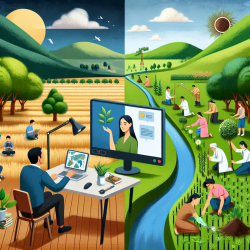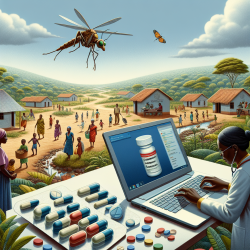Introduction
In the realm of online therapy services, especially those provided to educational institutions, understanding diverse fields of study can enhance the therapeutic approaches and strategies employed by practitioners. One such field is sustainable agriculture, particularly as explored in the research article "Farmers’ perceptions of sustainable agriculture in the Red River Delta, Vietnam." This study provides insights that can be translated into the online therapy context, particularly in enhancing practitioners' skills and encouraging further research.
Understanding the Research
The study focuses on the Red River Delta in Vietnam, where agriculture plays a pivotal role in economic growth and food security. However, intensive agricultural practices have led to environmental issues such as soil degradation and water pollution. The research employs the Theory of Planned Behavior (TPB) to analyze factors influencing farmers' intentions to adopt sustainable practices. Key findings highlight the importance of attitudes and perceived behavioral control in shaping intentions, while subjective norms have a less significant impact.
Implications for Online Therapy Practitioners
While the study is rooted in agriculture, its findings can be extrapolated to the field of online therapy. Here are some ways practitioners can enhance their skills:
- Attitude Adjustment: Just as farmers' attitudes significantly influence their adoption of sustainable practices, therapists' attitudes towards new therapeutic methods can impact their effectiveness. Practitioners should cultivate a positive outlook towards innovative approaches and technologies in therapy.
- Perceived Behavioral Control: Therapists need to feel confident in their ability to implement new strategies. This involves continuous professional development and training, much like farmers needing the skills to adopt sustainable practices.
- Addressing Subjective Norms: While the study found subjective norms less impactful, in therapy, understanding and integrating cultural and societal norms can enhance client engagement and therapy outcomes.
Encouraging Further Research
Practitioners should be encouraged to delve deeper into interdisciplinary research. The insights from sustainable agriculture can inspire new therapeutic strategies, particularly in understanding client behaviors and motivations. Engaging with such research can foster innovative approaches to therapy, especially in addressing environmental and societal challenges faced by clients.
Conclusion
Incorporating insights from diverse fields like sustainable agriculture can significantly enhance the skills of online therapy practitioners. By understanding the factors influencing behavior, as highlighted in the Red River Delta study, therapists can develop more effective strategies tailored to their clients' needs. For those interested in exploring this research further, the original paper can be accessed here.










